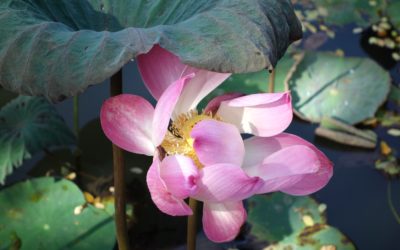🎥 Last week, CUSO published a short video interview of… me! Crazy, right? ^^ 👇
(not the best picture caption but well 🤷♀️)
This takes part in their series entitled “Doing a PhD… And then what?” where they interviewed 6 people about their career path and asking them to share tips to PhD candidates. This is an amazing project which they started quite some time ago, and which got delayed due to the covid19 crisis, meaning it actually has been over a year since we did this recording…
Hearing what I said back then makes me think again, also because so much happened since that day!
But you know what? I’m still super happy with what I said 🙂
Let’s skip the first question when Ilaria Orsi and Caroline Betto-Colliard asked me how I got the idea to create my blog. If you’re new to my blog, just start here.
They asked me what advice I could give to PhD students to help them overcome isolation during the PhD. In this exceptionally challenging covid19 time, I feel like this question is right on the spot!
My suggestions are simply to take care of oneself, by scheduling and saving true “me time” in one’s calendar, and by finding a community of support.
How?
I crossed out the word “simply” above, because it isn’t easy to figure out what to do to feel better when one is already feeling lost in their PhD and maybe falling into depression, anxiety or burn out… I don’t know any simple nor one fits all solution.
One tip I gave in the video is to do some sports. When my head feels like a dense fog of thoughts, only sport allows me to switch it off and recharge. Also sleep and meditation help a lot too, and reading fantasy books, and hiking, and eating cheese fondue and looking at the mountains through my window and… and… OK, you’ve got it! Nourish your hobbies.
A PhD is a long journey, work/life balance is the key for the long run. If it’s in balance, there is no guilt to have when taking time for oneself.
Second level: find a community support. I believe the best people to understand what a PhD student is going through is other PhD students, and other young academics, or so-called Early Career Researchers. In other words: join a doctoral program, participate in their activities, talk to other students, notice many have the same fears, share and help each other. And read my first blog post here.
As a quick parenthesis note: CUSO offers 33 doctoral programs in Western Switzerland and counts over 4500 PhD students registered!! Now you understand why they are the experts of doctoral education in Switzerland. You’re welcome. 👍
Last point.
The third question Caroline and Ilaria asked me in this video is “From your experience, what are the crucial transferable skills to accomplish a PhD thesis?” Briefly, I mentioned the capacity to slow down to look at the big picture of the PhD, and about project management and all the communication and negotiation skills it involves. This is a subject which I already wrote about here and here.
Other points, which couldn’t make it inside a less than 3-minute video, are time management and self-organization. These are huge subjects which I wish to explore further one day 🙂 #StayTuned
In conclusion of today’s post, I hope our short video and this post can help spread awareness about the mental health crisis in academia and encourage PhD students to reach out and to figure out their own solutions to keep it up during the long run. 🏃♀️
I would also like to sincerely thanks Ilaria, Caroline, Denis Billotte and the full CUSO secretary office team for inviting me to be in this video series, and for all the other amazing professional opportunities you gave and are still giving me 🙏 🙂
Now dear reader, check out the whole video series here and have a look at their great blog posts!
Subscribe here to get my next article in your inbox! 📩




0 Comments